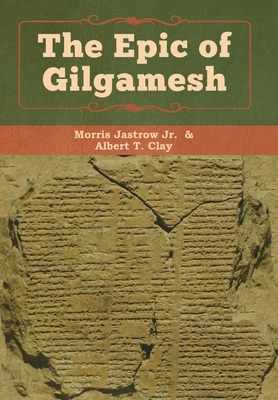The Epic of Gilgamesh

The Epic of Gilgamesh
The Epic of Gilgamesh is an ancient poem from Mesopotamia (present day Iraq, as well as southeast Turkey, Syria, and southwest Iran) and is among the earliest known works of literature. Scholars believe that it originated as a series of Sumerian legends and poems about the mythological hero-king Gilgamesh, which were gathered into a longer Akkadian epic much later. The most complete version existing today is preserved on 12 clay tablets from the library collection of 7th-century BC Assyrian king Ashurbanipal. It was originally titled He who Saw the Deep (Sha naqba īmuru) or Surpassing All Other Kings (Shūtur eli sharrī). Gilgamesh was probably a real ruler in the late Early Dynastic II period (ca. 27th century BC).
The story revolves around a relationship between Gilgamesh and his close companion, Enkidu. Enkidu is a wild man created by the gods as Gilgamesh's equal to distract him from oppressing the citizens of Uruk. Together they undertake dangerous quests that incur the displeasure of the gods. Firstly, they journey to the Cedar Mountain to defeat Humbaba, its monstrous guardian. Later they kill the Bull of Heaven that the goddess Ishtar has sent to punish Gilgamesh for spurning her advances.
The latter part of the epic focuses on Gilgamesh's distressed reaction to Enkidu's death, which takes the form of a quest for immortality. Gilgamesh attempts to learn the secret of eternal life by undertaking a long and perilous journey to meet the immortal flood hero, Utnapishtim. Ultimately the poignant words addressed to Gilgamesh in the midst of his quest foreshadow the end result: "The life that you are seeking you will never find. When the gods created man they allotted to him death, but life they retained in their own keeping." Gilgamesh, however, was celebrated by posterity for his building achievements, and for bringing back long-lost cultic knowledge to Uruk as a result of his meeting with Utnapishti. The story is widely read in translation, and the protagonist, Gilgamesh, has become an icon of popular culture.
PRP: 244.93 Lei
Acesta este Prețul Recomandat de Producător. Prețul de vânzare al produsului este afișat mai jos.
195.94Lei
195.94Lei
244.93 LeiLivrare in 2-4 saptamani
Descrierea produsului
The Epic of Gilgamesh is an ancient poem from Mesopotamia (present day Iraq, as well as southeast Turkey, Syria, and southwest Iran) and is among the earliest known works of literature. Scholars believe that it originated as a series of Sumerian legends and poems about the mythological hero-king Gilgamesh, which were gathered into a longer Akkadian epic much later. The most complete version existing today is preserved on 12 clay tablets from the library collection of 7th-century BC Assyrian king Ashurbanipal. It was originally titled He who Saw the Deep (Sha naqba īmuru) or Surpassing All Other Kings (Shūtur eli sharrī). Gilgamesh was probably a real ruler in the late Early Dynastic II period (ca. 27th century BC).
The story revolves around a relationship between Gilgamesh and his close companion, Enkidu. Enkidu is a wild man created by the gods as Gilgamesh's equal to distract him from oppressing the citizens of Uruk. Together they undertake dangerous quests that incur the displeasure of the gods. Firstly, they journey to the Cedar Mountain to defeat Humbaba, its monstrous guardian. Later they kill the Bull of Heaven that the goddess Ishtar has sent to punish Gilgamesh for spurning her advances.
The latter part of the epic focuses on Gilgamesh's distressed reaction to Enkidu's death, which takes the form of a quest for immortality. Gilgamesh attempts to learn the secret of eternal life by undertaking a long and perilous journey to meet the immortal flood hero, Utnapishtim. Ultimately the poignant words addressed to Gilgamesh in the midst of his quest foreshadow the end result: "The life that you are seeking you will never find. When the gods created man they allotted to him death, but life they retained in their own keeping." Gilgamesh, however, was celebrated by posterity for his building achievements, and for bringing back long-lost cultic knowledge to Uruk as a result of his meeting with Utnapishti. The story is widely read in translation, and the protagonist, Gilgamesh, has become an icon of popular culture.
Detaliile produsului










